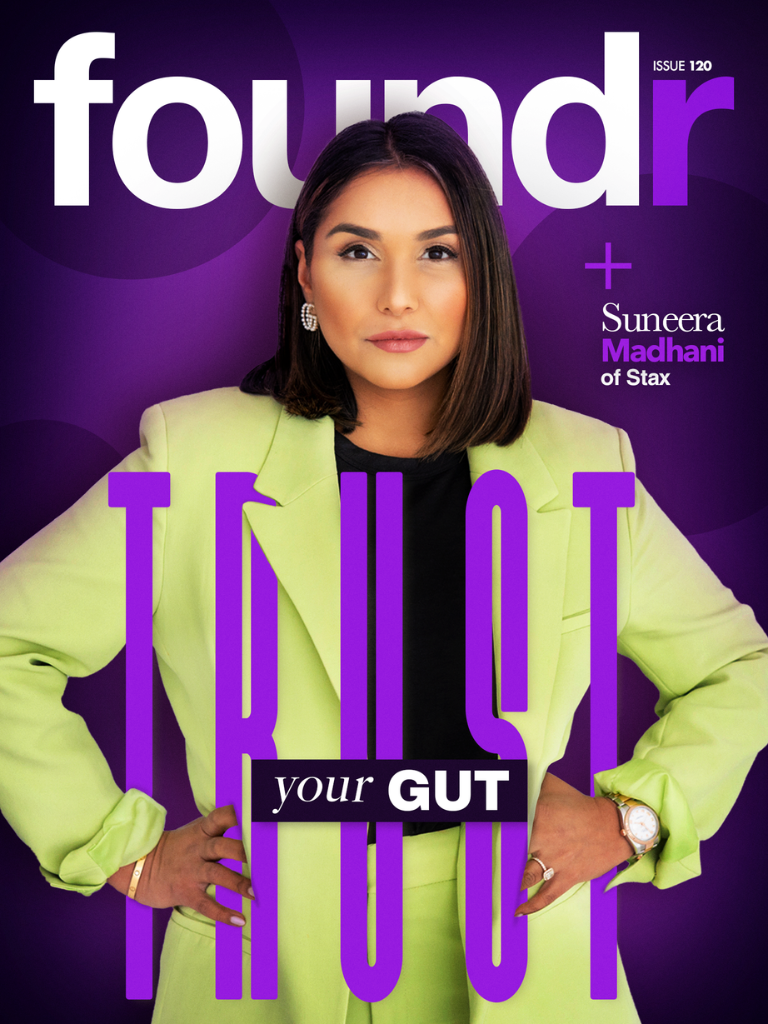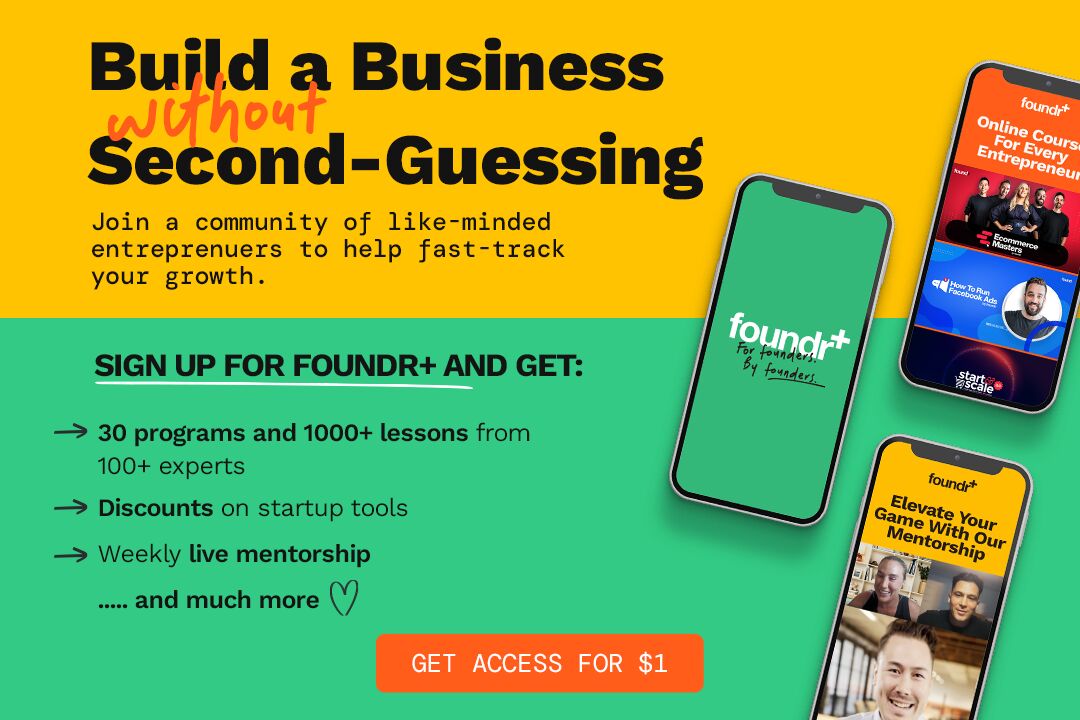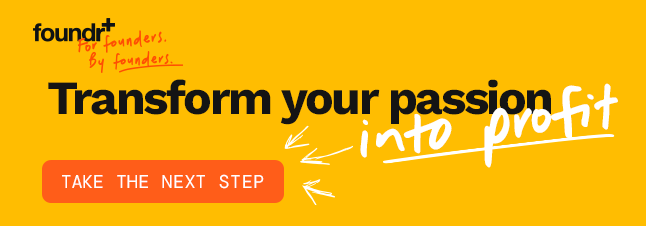[ad_1]
On a transparent and comfortably heat afternoon in Orlando, Florida, Suneera Madhani and her group floated to a restaurant throughout from their downtown workplace. It was St. Patrick’s Day, and gleeful patrons stuffed the green-hued bar, however Madhani had one thing to have fun moreover the vacation.
Her enterprise, Stax (previously Fattmerchant), had simply obtained a time period sheet for $17 million. Simply 4 years prior, in 2014, Madhani began the all-in-one fee platform utilizing $50,000 in startup capital from family and friends. Madhani by no means thought that she, a girl with immigrant mother and father and minimal startup connections, might construct a million-dollar enterprise.
“It’s a really thrilling time for a founder any time you obtain something tangible on paper,” Madhani says.
The following day, she introduced the supply to her board and began pursuing the diligence course of with the investor.
“Lengthy story brief, my intestine was not clicking,” Madhani says.
However the board stored pushing to proceed till the buyers adjusted their bid. When Madhani noticed the supply, she was shocked.
“I stated, ‘There’s no method I’m going to f***ing settle for this.’”
Madhani’s instinct proved right. Right this moment, Stax has greater than 300 workers and $100 million-plus in recurring software program income, oversees $23 billion in funds, and was acknowledged by Forbes as one of the vital progressive fintech corporations.
Madhani knew Stax was price extra. Way more. We’re speaking billions, not hundreds of thousands.
Household Dinner
Earlier than boardrooms and valuations, Madhani labored for a bank card firm promoting transaction machines out of the trunk of her Volkswagen Beetle.
Her mother and father immigrated to the US from Pakistan, met in Chicago, married, then moved their younger household to Dallas, Texas. It was by way of her household that Madhani discovered the highs and lows of entrepreneurship.
“I come from this line of entrepreneurship out of necessity,” Madhani says. “To ensure that them to have their American dream, they needed to begin a enterprise.”
Her household’s companies ranged from quick meals chains to a advertising company, and Madhani spent her childhood serving to after faculty and on weekends. Sarcastically, her mother and father’ imaginative and prescient of the American dream was to present Madhani and her brother an training—to not turn out to be entrepreneurs.
“I noticed firsthand what it took to construct a enterprise, what it took for companies to fail, the hardship, the nice, the dangerous, the ugly, and the whole lot in between,” Madhani says. “However all of that credit score goes to my mother and father.”
“I noticed firsthand what it took to construct a enterprise, what it took for companies to fail, the hardship, the nice, the dangerous, the ugly, and the whole lot in between.”
However credit score isn’t only for her mother and father’ actions however for what they stated at a fateful dinner that modified Madhani’s life.


‘Why Not You?’
In 2012, a uncommon snowstorm hit Texas whereas Madhani was visiting her mother and father in Dallas. As a result of she was caught hundreds of miles from her residence in Orlando, she had her subscription containers rerouted. She was obsessive about the early-adopter subscriptions like Birchbox and BarkBox in a time she describes because the “pre-subscription economic system.”
“[Then] that mild bulb went off, and I used to be like, ‘Holy s***, why isn’t there a flat subscription in funds?’”
As a substitute of going residence on that journey, she ended up routing her ticket to Houston, the headquarters of the bank card firm she labored for. She secured a gathering with the C-suite and labored on the presentation for per week whereas binging the primary two seasons of Shark Tank to excellent her pitch.
“All I needed was to see this success in my very own firm,” Madhani says. “[But] they laughed me out of the boardroom.”
Distraught and annoyed, Madhani returned to Dallas simply in time for Friday’s household dinner. She defined the frustration of the assembly and why the concept of a subscription fee platform might work.
“My household checked out me and stated, ‘Why not you?’” Madhani says.
“My household checked out me and stated, ‘Why not you?’”
It was the primary time Madhani realized she might do it herself, however she instantly blurted out excuses—no growth expertise, no buyers, no business connections.
“My mother and father stated, ‘What’s the worst that would occur? Give your self six months and provides it a go,’” Madhani says.
She give up her job and moved into her mother and father’ home. With $50,000 of startup capital raised from private financial savings, pals, household, and her now-husband, she rapidly spent half of the funding on compliance with bank card corporations like Visa and Mastercard. She didn’t have leftover capital to rent workers or contract out work, so she leaned into what made her distinctive.
“By not having capital, it really pressured me to suppose, ‘How am I going to do that in a different way compared to the business?’”
In 2014, most bank card corporations went to market by way of bodily banking channels. Utilizing her background in digital advertising, Madhani constructed an internet site, began writing blogs for search engine optimization, and invested $500 in Google Advert Phrases.
“I encourage founders to leverage any white-label options which are already there to get an MVP off the bottom,” Madhani says. For instance, she partnered with a banking establishment to white label a transaction software program to check the speculation of a subscription-style mannequin versus a percentage-style mannequin.
“I encourage founders to leverage any white-label options which are already there to get an MVP off the bottom.”
“We took a guess on that thesis and constructed our know-how to be a funds hub,” Madhani says. “We had been in a position to construct our platform with our clients.”
She found that as a substitute of attracting clients like small enterprise eating places, they had been reaching healthcare {and professional} companies that wanted an omnichannel platform for in-person and on-line funds.
“That was the thesis that introduced us the place we’re at the moment,” Madhani says.
Stax turned the primary subscription-based bank card processor to return to market with flat charges and limitless bank card utilization. Shortly, they had been thought-about the Netflix of bank card processing. Inside six months of her mother and father’ steered timeline, she processed greater than $5 million in funds.
The three Minds
The most important lesson Madhani discovered in her profession occurred when she met along with her board following the primary time period sheet supply.
“It was a s***present of a board assembly,” Madhani says. The buyers had lowered their preliminary $17 million supply to $12 million. “For those who’re negotiating with one celebration, you’re negotiating with your self.”
However the board nonetheless needed to take the deal.
“I stated, ‘You guys simply invested on this enterprise. What has modified within the final six weeks that you just’re able to take this minimal supply simply incrementally greater than you invested in?’”
Madhani didn’t again down. She relied on what she describes as her “three minds”—analytical, coronary heart, and intestine.
“I want all three to make the choices, and when one isn’t feeling proper, I’ve to belief that,” Madhani says.
Shortly following the rejection of the bid, she obtained one other time period sheet for $50 million. It was a non-public fairness deal that purchased out their preliminary buyers—the boardroom naysayers—and exited them 18 instances their funding.
“Your instinct is essentially the most highly effective instrument you will have, [so] use it and don’t low cost it and take heed to it,” Madhani says.
“Your instinct is essentially the most highly effective instrument you will have, [so] use it and don’t low cost it and take heed to it.”
To this point, Stax has raised $500 million in capital and is rising triple digits year-over-year. In March of 2022, Stax formally turned a unicorn startup with a valuation of greater than $1 billion.
CEO College
Madhani has been named to Fortune’s prestigious 40 Below 40 listing, a recipient of EY’s Entrepreneur of the Yr award, and featured in Forbes, Bloomberg, and Fortune, Inc.
“Folks overlook that it took 10 years to get the place we’re at the moment, and it was plenty of blood, sweat, and tears,” Madhani says. “As arduous because it’s been, it’s additionally been essentially the most rewarding factor I’ve been in a position to do.”
“Folks overlook that it took 10 years to get the place we’re at the moment, and it was plenty of blood, sweat, and tears.”
All the things Madhani has discovered in enterprise is thru expertise, like her saying “no” to her board for a lowball buyout. At that second, she discovered to give attention to execution and never the shiny object.
“I used to be distracted from the enterprise,” Madhani says, “after I ought to have been centered on constructing the enterprise in entrance of me.”
Madhani shared these classes on panels and at conferences, but it surely was in 2020 that she shared them broadly with ladies like her.
After having her kids, Madhani felt remoted in a enterprise govt tradition that didn’t help a working mother. Harvard Enterprise Evaluate reported that lower than three % of ladies obtain startup funding. For minority ladies, that quantity is even smaller.
“I’ve by no means had a seat on the desk, so I’ve needed to construct my very own,” Madhani says.
When Instagram launched its Tales platform, Madhani began brazenly sharing her life-style as a CEO, like dropping off children to highschool on the way in which to pitch conferences and doing an Instagram Dwell Q&A session each Wednesday evening referred to as Wine Down Wednesdays.
She began to construct a group of different feminine founders. Then, through the early days of the Covid-19 pandemic, her DMs turned overwhelmed with the variety of questions and issues from ladies main companies. So Madhani began a podcast referred to as CEO College, the place she interviews enterprise leaders, CEOs, and feminine founders about their experiences and classes.
“I wish to make an influence and make a dent in that statistic,” Madhani says.
“I wish to make an influence and make a dent in that statistic.”
The podcast is rated within the high 25 entrepreneurship exhibits, and she or he’s grown the listener group to 300,000 ladies.
Preserve Studying: How Erin Deering Constructed Triangl Right into a Swimwear Motion
What’s Potential?
Regardless that Madhani has had loads of alternatives to maneuver on from Stax, she wouldn’t commerce something for the journey.
“Every single day I get to indicate up for one thing totally different, for a job that was more durable than the one I had yesterday,” Madhani says. “It doesn’t get simpler. You simply get higher.”
“It doesn’t get simpler. You simply get higher.”
The constant recommendation she shares on CEO College and with fellow founders on Instagram is execute.
“The exit will occur, the end result will occur, the success will occur, so long as you give attention to execution,” Madhani says. “There’s no such factor as a billion-dollar thought. It’s solely a billion-dollar execution.”
Stax is a four-letter phrase for a purpose. In 2020, Madhani made one of many hardest selections of her profession to rebrand from Fattmerchant to Stax.
“As a founder, you will have to have the ability to see what alternatives there are on your firm in keeping with the market, in keeping with the place your clients are headed, [and] in keeping with how your organization is rising,” Madhani says.
Stax’s progress is towards an finally IPO-sized enterprise, far past what Madhani might conceive round her mother and father’ dinner desk a decade in the past. However what’s subsequent is past simply Stax. It’s about making her story the primary of many.
“I don’t suppose it’s about what’s subsequent. It’s about what’s potential,” Madhani says. “It’s about how I can take this platform and present different ladies that they will do it, too.”
Methods to Make Enterprise Selections
Under is how Madhani makes use of her “three minds” technique for making selections.
- Analytical: What do the numbers and developments present?
- Coronary heart: What are your trusted advisors, group, and clients telling you?
- Intestine: What do you are feeling down in your core that’s the right choice?
If one of many 3 minds is off, meaning there’s a downside. When all 3 are unified, you possibly can belief your choice.
[ad_2]
Luke Ferris
2024-05-13 13:04:07
Source :https://foundr.com/articles/building-a-business/suneera-madhani







Discussion about this post